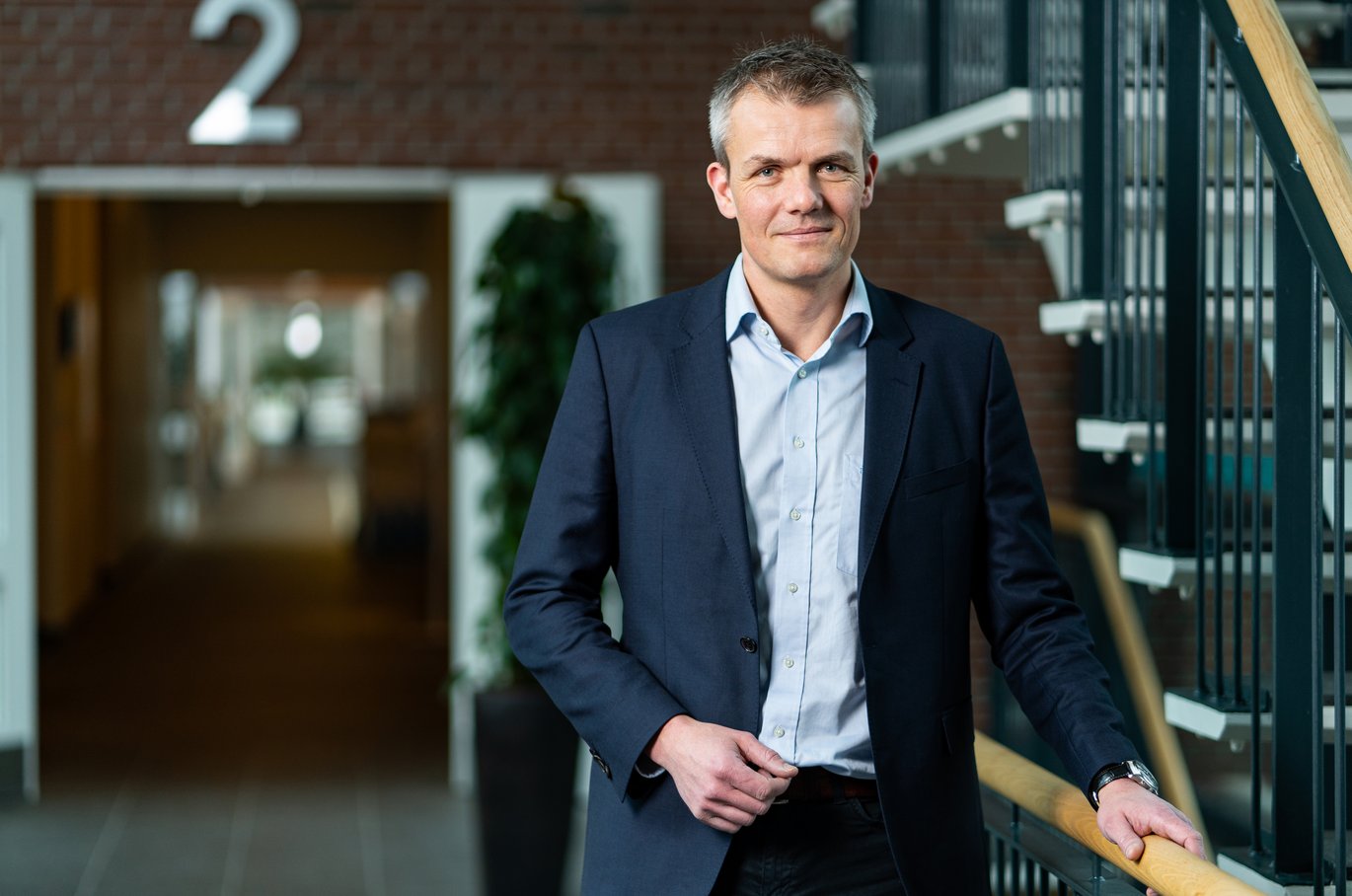Study: Pill makes patients with life-threatening muscle weakness stronger
A team of researchers from Aarhus University and the spin-out company NMD Pharma have discovered a potentially new treatment for patients suffering from Myasthenia Gravis, an autoimmune disease that leads to severe muscle weakness and extreme fatigue.

For the thousands of people globally affected by the disease myasthenia gravis (MG), everyday activities become a struggle, and in severe cases, the disease can be life-threatening.
Until now, there has been no muscle-specific and effective treatment against this rare autoimmune disease that leads to severe weakening of the muscles and fatigue. But now, a team of researchers from Aarhus University reveals a breakthrough in the treatment of MG that could give hope to many patients worldwide.
"The patients simply became stronger because the new treatment improves the communication between motor nerves and muscle fibers," says Thomas Holm Pedersen, an associate professor at the Department of Biomedicine at Aarhus University, CEO of NMD Pharma, and the lead author of the study that has just been published in the journal Science Translational Medicine.
Focusing on the link between nerve cells and muscles
MG is a disease where the immune system attacks the connection between nerves and muscle cells. It can affect breathing and be life-threatening, and it was precisely these symptoms that the researchers aimed to combat by strengthening the function of the contact point between nerves and muscle cells.
During his PhD project at Aarhus University, Thomas Holm Pedersen discovered that the so-called CIC-1 chloride channels at the neuromuscular junction are crucial for muscle activation.
"This led to the idea of using the CI channels as a new treatment point for diseases where the neuromuscular connection is compromised, including myasthenia gravis," he explains.
And it proved to be a good idea. The researchers demonstrated that they could effectively strengthen the muscles' ability to respond to nerve impulses by targeting a treatment at the specific channel. This, in theory, could increase muscle strength and reduce fatigue in patients.
"As there were no medications targeting the Cl channel, we first had to find the right molecule that we could test in patients, which requires considerable work and various tests before the regulatory authorities allow testing in humans. We tested it on patients who had to take a tablet daily for their muscle weakness and fatigue, and we could see that the treatment concept worked. The patients became stronger.
Treatment without side effects?
This represents a significant advance in the treatment of MG. Not only because it was successful in increasing muscle strength among patients, but also because the treatment, unlike existing methods, may well prove to be free from side effects.
"We won't know for sure for a few years, after we've conducted more studies, but it looks really promising right now," says Thomas Holm Pedersen.
The breakthrough could result in a significant improvement in the quality of life for patients struggling with MG, but it is also a big leap forward in the understanding and treatment of other neuromuscular diseases.
The research team is currently planning more follow-up clinical trials, including another study on MG and one on the hereditary disease spinal muscular atrophy, which leads to muscle wasting.
According to Thomas Holm Pedersen, we may be on the verge of a paradigm shift in the treatment of MG and other serious neuromuscular diseases.
"This study summarizes years of work here at Aarhus University and NMD Pharma. We have proven that the method works in patients, and now we continue with the clinical trials to bring the drug to the patients and to explore its broader application," he says.
Behind the research result
Study type: Randomized, double-blind, placebo-controlled, three-way crossover comparison of two single oral doses of NMD670 and placebo in men and women with stable symptomatic MG
Partners: NMD Pharma
External funding: The study is financed by NMD Pharma
Conflict of interest: Thomas Holm Pedersen and several others are inventors on patents related to the treatment of neuromuscular disorders, which involve both specific compounds and manufacturing processes. The research is supported by NMD Pharma A/S, where many of the authors are or have been employed, and some have financial interests in the form of stock options. A few authors have received funding or have consultancy roles with NMD Pharma A/S.
Link to the scientific article: https://www.science.org/doi/10.1126/scitranslmed.adk9109?adobe_mc=MCMID%3D61181809243887096264036353964800578399%7CMCORGID%3D242B6472541199F70A4C98A6%2540AdobeOrg%7CTS%3D1710786479
About NMD Pharma
NMD Pharma was founded in 2015 and is headquartered in Aarhus. The company develops new treatments for neuromuscular diseases.
Founded by:
- Thomas Holm Pedersen, CEO and Associate Professor at the Department of Biomedicine, Aarhus University.
- Ole Bækgaard Nielsen, Professor and vice dean of talent development at the Natural Sciences, Aarhus University
- Claus Elsborg Olesen, Senior researcher, Department of Biomedicine, Aarhus University
Investors:
- Novo Holdings – a private equity fund owned by the Novo Nordisk Foundation.
- Lundbeckfonden BioCapital – a capital fund owned by the Lundbeck Foundation. Invests in life science companies focusing on neuroscience.
- INKEF Capital – a capital fund investing in life science companies in the USA and Europe.
- The Roche Venture Fund – a capital fund owned by Roche. Invests in life science companies focusing on new technologies.
- Jeito Capital – a capital fund investing in life science companies in Europe.
- CAPNOVA – a capital fund investing in life science companies in Denmark.
NMD Pharma was established by researchers from the Department of Biomedicine at Aarhus University, where they have worked on developing new treatments for neuromuscular diseases.
NMD Pharma has a collaboration agreement with the university, which among other things gives NMD Pharma access to the university's laboratory facilities.
NMD Pharma also has a number of employees who are affiliated with Aarhus University. These employees work on both research and development projects.
Contact
Associate Professor and CEO Thomas Holm Pedersen
Aarhus University, Department of Biomedicine NMD Pharma
thp@biomed.au.dk
Phone: +45 30739514